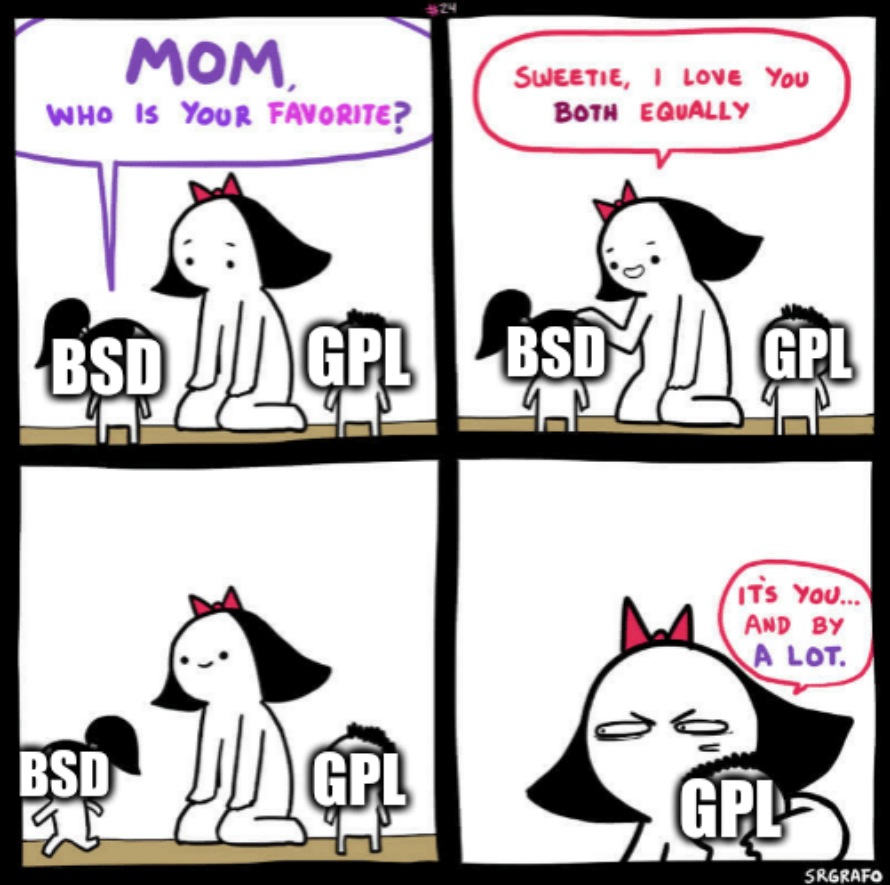this post was submitted on 28 Aug 2024
807 points (97.9% liked)
linuxmemes
23072 readers
1965 users here now
Hint: :q!
Sister communities:
Community rules (click to expand)
1. Follow the site-wide rules
- Instance-wide TOS: https://legal.lemmy.world/tos/
- Lemmy code of conduct: https://join-lemmy.org/docs/code_of_conduct.html
2. Be civil
3. Post Linux-related content
sudo in Windows.4. No recent reposts
5. 🇬🇧 Language/язык/Sprache
Please report posts and comments that break these rules!
Important: never execute code or follow advice that you don't understand or can't verify, especially here. The word of the day is credibility. This is a meme community -- even the most helpful comments might just be shitposts that can damage your system. Be aware, be smart, don't remove France.
founded 2 years ago
MODERATORS
you are viewing a single comment's thread
view the rest of the comments
view the rest of the comments

Sometimes there's a benefit in getting open source code into proprietary software. Think libraries implementing interoperability APIs, communication protocols, file formats, etc
That's what permissive licenses are for.
If some company wants to keep their code closed and they have a choice between something interoperable or something proprietary that they will subsequently promote, and the licence is the only thing stopping them from going for the open source approach, that's worse.
Completely agree that a good breadth of everything else is suited to copyleft licensing though
That's the whole point, you're leveraging the use of the commons so that it's less feasible to keep your code closed. If they want to keep their code closed, they can spend a lot more manhours building everything from scratch.
Our man-hours come from leadership and architects so separated from code they can't agree on drawings or what constitutes a micro service architecture or... Any real pattern at all.
This is a hypothetical that has no clear bearing connection to common practice.
In other words, I could just reverse this to contradict it and have equal weight to my hypothetical: devs should always use GPL, because if their software gets widely adopted to the point where companies are forced to use it, it's better that it's copyleft.
This is not a hypothetical and is in fact quite common. Say you're working for a non profit, write code for a standard specification that is better than all other open options. It is better for everyone that companies adopt this code for interoperability.